Is it possible to use JavaLoader to get objects returned by CF-called web services, and JavaLoader-loaded objects to be the same classpath context? I mean, without a lot of difficulty?
// get a web service
ws = createObject("webservice", local.lms.wsurl);
// user created by coldfusion
user = ws.GenerateUserObject();
/* user status created by java loader.
** this api provider requires that you move the stubs
** (generated when hitting the wsdl from CF for the first time)
** to the classpath.
** this is one of the stubs/classes that gets called from that.
*/
UserStatus = javaLoader.create("com.geolearning.geonext.webservices.Status");
// set user status: classpath context clash
user.setStatus(UserStatus.Active);
Error:
- Detail: Either there are no methods with the specified method name and argument types or the setStatus method is overloaded with argument types that ColdFusion cannot decipher reliably. ColdFusion found 0 methods that match the provided arguments. If this is a Java object and you verified that the method exists, use the javacast function to reduce ambiguity.
- Message: The setStatus method was not found.
- MethodName setStatus
Even though the call, on the surface, matches a method signature on user--setStatus(com.geolearning.geonext.webservices.Status)--the class is on a different classpath context. That's why I get the error above.
